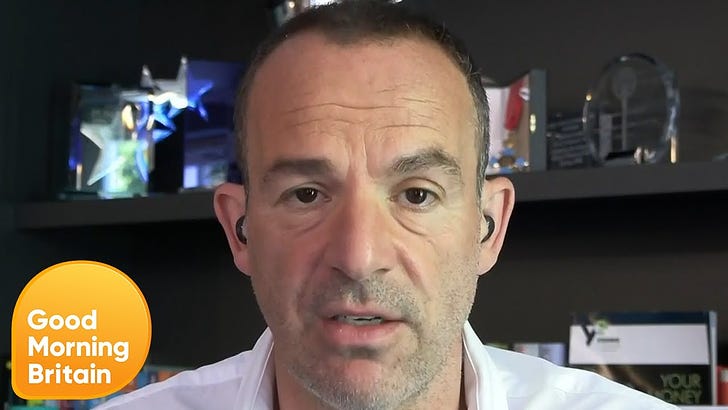Deepfake Scam Video Features British Consumer Champion Martin Lewis and Elon Musk
How will social media platforms address this rising risk?
Martin Lewis is the founder of MoneySavingExpert.com, the host of ITV’s The Martin Lewis Money Show, and is characterized by Good Morning Britain as a “trusted consumer champion.” A Lewis deepfake video is also the vehicle for a recent online scam featuring a fictitious company called Quantum AI.
Lewis’ MoneySavingExpert news warned readers about this on July 7th.
A frightening new scam video of MoneySavingExpert.com founder Martin Lewis is circulating on social media, using artificial intelligence to mimic his face AND voice to purportedly promote an app associated with Tesla and Twitter owner Elon Musk. It is completely fake – Martin has nothing to do with it.
The video shows what appears to be Martin sat in his office, discussing an investment in something called 'Quantum AI', labelled as 'Elon Musk's new project'. It is terrifyingly convincing, as the computer-generated impersonation of Martin uses his voice. It uses a caption with similar branding to ITV's This Morning, a show Martin regularly appears on.
It seems that the video first appeared on Facebook, and we've heard further reports of it circulating on Instagram. It was initially shared with Martin on Twitter.
You can see how realistic this seems below when posted on Twitter. There is an abrupt cut, but this may not seem unusual when viewing video clips on social media platforms, particularly on small screens.
A “Wild West Dystopian Future”
Lewis appeared on Good Morning Britain to discuss the scam in more detail (the interview is the embedded video at the top).
“This is a deepfake…we’re not quite sure of the exact tech. This is going around Facebook at the moment and as far as I know it is the first deepfake scam advert that we’ve seen. It’s certainly the first with me in it … This is only the early stages of the technology and they are only going to get better within a year or two.”
…
“We still have an absolute wild west on social media and other big tech advertisting platforms that allow scammers to get away with inpunity. And what I want everybody watching to remember, every time you see one of those adverts, one of the big tech firms is being paid to promote that advert and these destroy vulnerable people and many non-vulnerable people’s lives. Once you get scammed, the impact on your mental health and self-estemm is huge, with many people.”
…
“We are in a dangerous dystopian future and nothing is being done to protect people. It is an absolute sham.”
Fraudulent Deepfakes on the Rise
CBC reported on the case of the Letto family earlier this year. The parents received a call from someone they thought was their son. The caller impersonating their son said he had hit a pregnant woman with his car while traveling in Toronto and needed $9,800 to be released from custody.
"I thought it was my son," the St. John's woman told CBC News in a recent interview.
…
They were convinced their son desperately needed help and jumped into action. They went to the bank and withdrew almost $10,000 in cash.
…
Police in St. John's say at least four other senior couples lost a combined $200,000 to similar scams between Feb. 28 and March 2. The Royal Newfoundland Constabulary says Charles Gillen, 23, came to St. John's from Toronto to collect the money in person.
Gillen was arrested on the tarmac at St. John's International Airport, on a flight leaving the province, on the evening of March 2. He's facing 30 charges of fraud, extortion and conspiracy to commit an offence.
The U.S. Federal Trade Commission issued a consumer alert about deepfakes in March 2023.
You get a call. There's a panicked voice on the line. It's your grandson. He says he's in deep trouble — he wrecked the car and landed in jail. But you can help by sending money. You take a deep breath and think. You've heard about grandparent scams. But darn, it sounds just like him. How could it be a scam? Voice cloning, that's how.
Deepfake Detection is Emerging
The deepfake video of Martin Lewis is very lifelike, and the voice clone is also high quality. A couple of years ago, there was a lot of fear about the potential of deepfakes. However, there were not many examples. That is no longer true.
The technology’s realism has improved along with accessibility. There are numerous voice clone software providers that offer the feature to anyone that uploads an audio clip. Synthetic voice software providers ElevenLabs and Resemble AI have both recently announced that they have services that will verify whether the voice clone was made with their software. Resemble also says it can also detect voice clones made by other providers.
Pindrop has been developing deepfake detection technologies for nearly a decade. Nick Gaubitch, Pindrop’s director of research, said in a recent blog post:
As AI technology continues to advance, the rise of deepfakes poses a serious threat. These manipulated images, videos, and audios use artificial intelligence to create convincing but false representations of people and events. Unfortunately, deepfakes are often difficult for the average person to detect. In fact, in a Pindrop study people were able to identify a deepfake with 57% accuracy, only 7% better than a coin toss.
…
In the video below you will see the results of our analysis with a real-time liveness score and the corresponding decision of whether the voice is real or fake (a low score indicates a deepfake while a high score indicates a live voice). What is particularly interesting here is not only the ability to correctly identify where speech is synthesized but also where it is not and to do so in real-time.
A New Standard Security Measure?
As fraudulent deepfakes become more common and the impact on consumers widens, you will likely see deepfake detection become a standard component of social media platforms and media company security stacks. This will also be true for call centers. It is a new cost of doing business in the generative AI era.
Social media platforms are particularly susceptible to this type of problem because of their broad distribution and ability to drive viral interaction. Government regulators are likely to force action by social media companies if they don’t act on their own.
There are many positive uses of deepfake technology, but the rise of detection solutions will be essential to ward off the downside risks. Consumers are getting scammed now. Some businesses have also been scammed. Their number will rise rapidly over the next year.
“Be wary of what you read on the internet,” is a widely recognized warning though not always heeded. We can now add that you should be wary of what you see and hear on the internet, and hear in your phone calls. This is true for both consumers and businesses.






